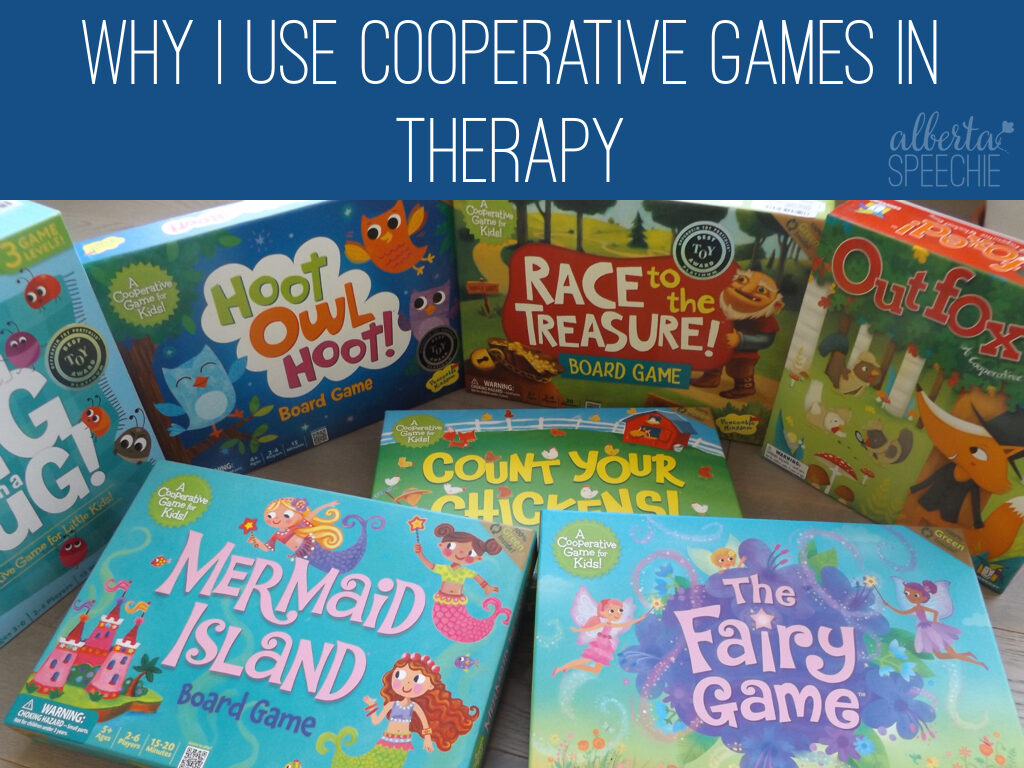I frequently use cooperative games when working with 4, 5, 6 and 7 year olds. Here is why I find them valuable.
They reduce the stress some children feel when they are losing. We have all had those children where the game becomes more important than the therapy because they are sooo concerned about losing. Most co-operative games (at least the ones I’ve played) still have winners and losers but you win or lose as a group. This group mentality seems to ease the fear that children have about losing.
They help teach children how to behave when they lose. There seems to be less temper tantrums and bursts of anger when you lose as a group. I think it has something to do with working as a group. Losing provides an opportunity to talk about how you don’t always win, what could you do differently next time, and did you try your hardest? If they lost, I will almost always have them play that game again the next time I see them and talk about what they would try differently this time.
They are good for teaching children how to behave when they win. We probably have all had a child who goes over the top when they win and makes the other students feel bad (e.g. “Oh yeah! I’m a winner and you’re a loser!”) Winning as a team eliminates the taunting. When they win, I talk about and show what winning should look like (e.g. high fives, talking about good teamwork). If a child is learning about how to win gracefully then they play these games before they play more traditional one player wins type games.
They “force” children to work together. For the most part, you can’t win without working together. Children are motivated by winning and with some guidance they start working together. If they lose and did not work together then odds are they will try to work together next time.
They help with problem solving. Most of the games I have played have a strong strategy component to them. Which character are you going to move on the game board? Which road piece are you going to put down? Are you going to give a card to another player? It also fosters communication between the players. They will often come up with plans (e.g. “If this happens we should do this…”) and negotiate what they should do. It is also a great teaching moment to help children realize that no everyone is going to follow their plan.
They are great for teaching social skills. These games are great for helping children learn taking turns, negotiating which strategy they should use at a turn, when should they suggest a strategy, how to give compliments, and how not to hurt a team members feelings. These are just a few skills targeted with co-operative games.
They have some games geared more towards girls’ interests. Now I don’t believe in “girl” toys and “boy” toys. The girls I work with don’t mind the games that are a little more geared towards boys but their faces light up with utter joy when I pull out a game about mermaids or fairies. Funny side note: The biggest argument I had last school year was when I brought in a mermaid game for the girls in the class. The boys were all up in arms that they couldn’t play it first. The game ended up in the classroom for a week and was played multiple times a day.
I have found that using co-operative games to be invaluable in therapy. They are fun, the children really really like to play them and they are learning how to become better friends.


One Comment